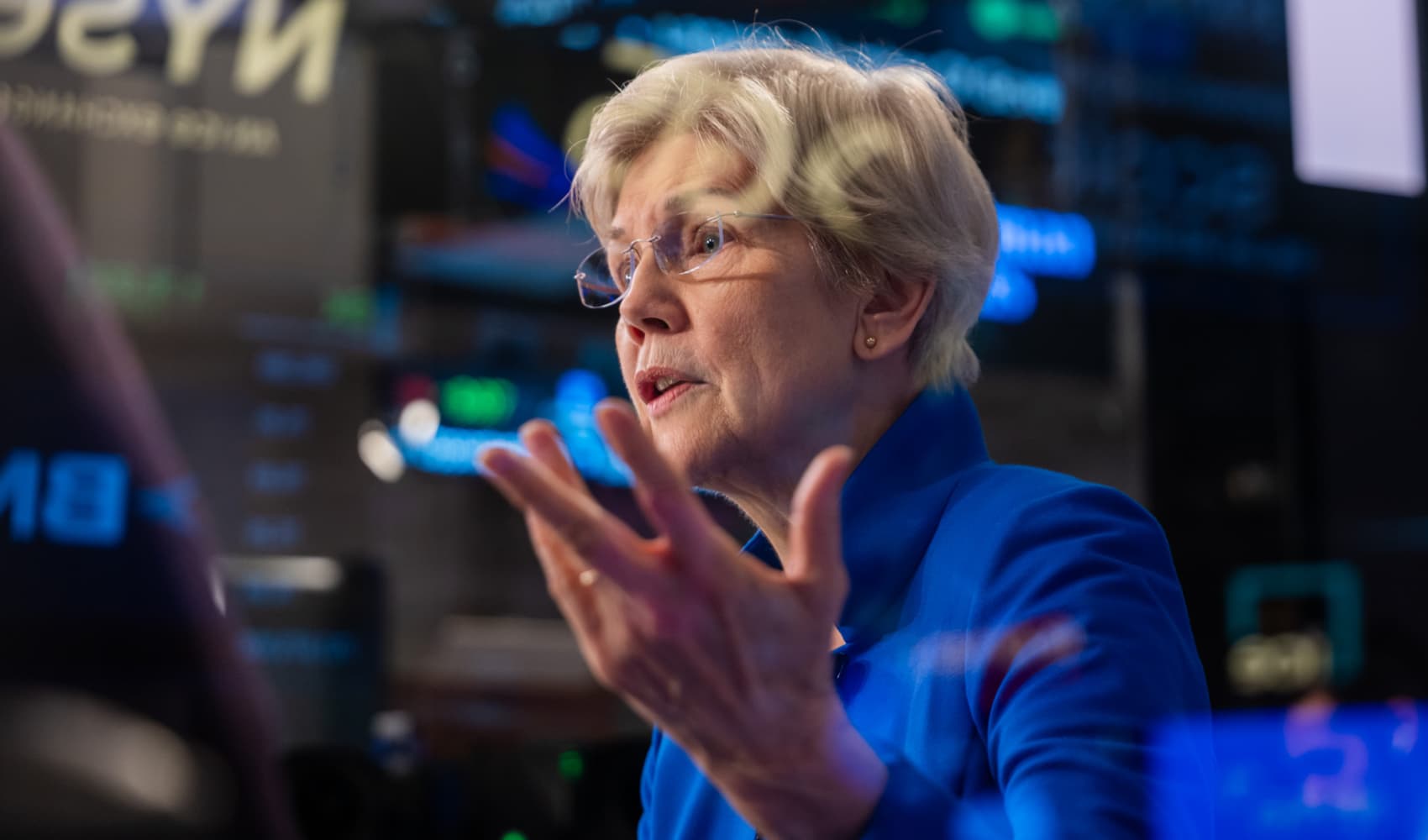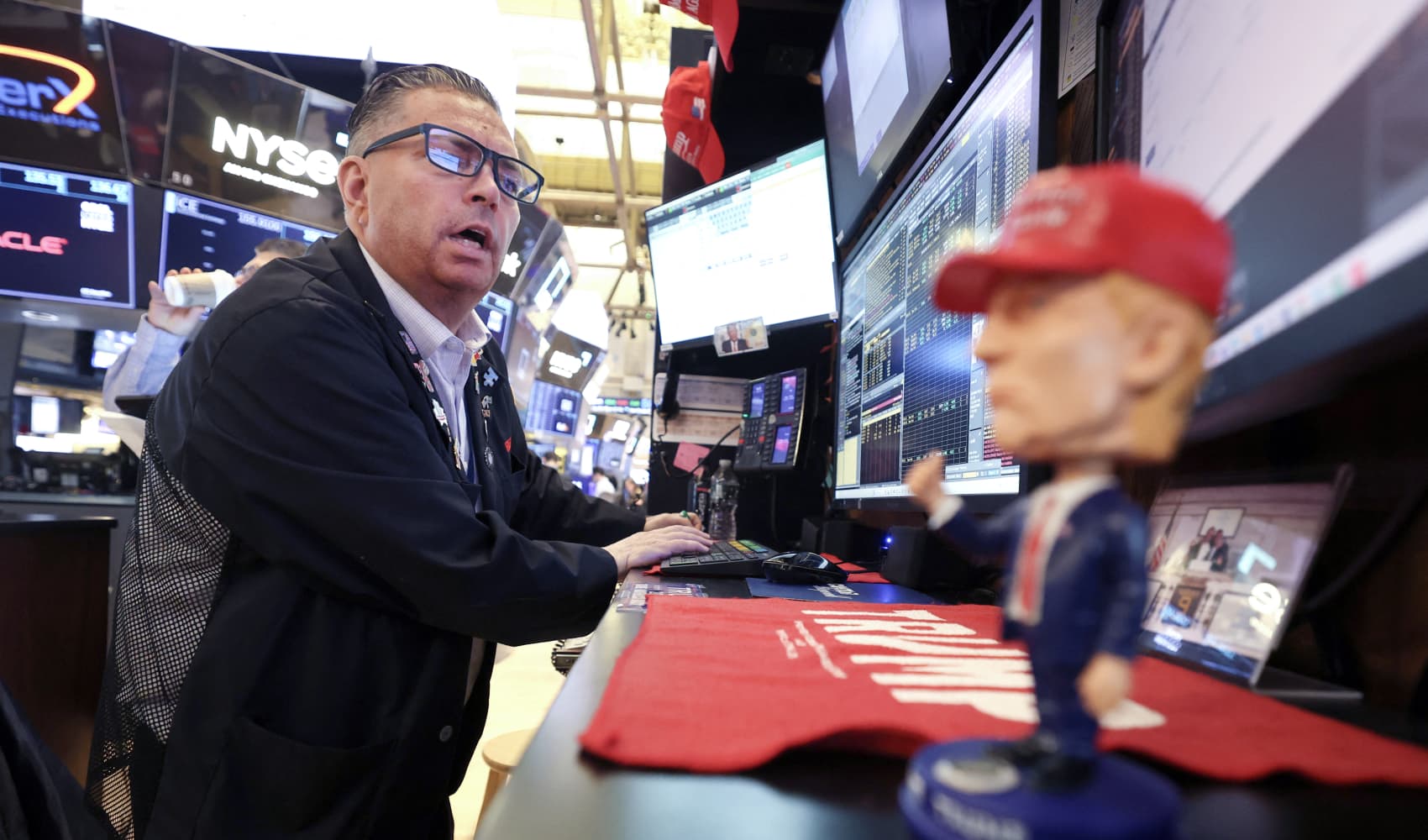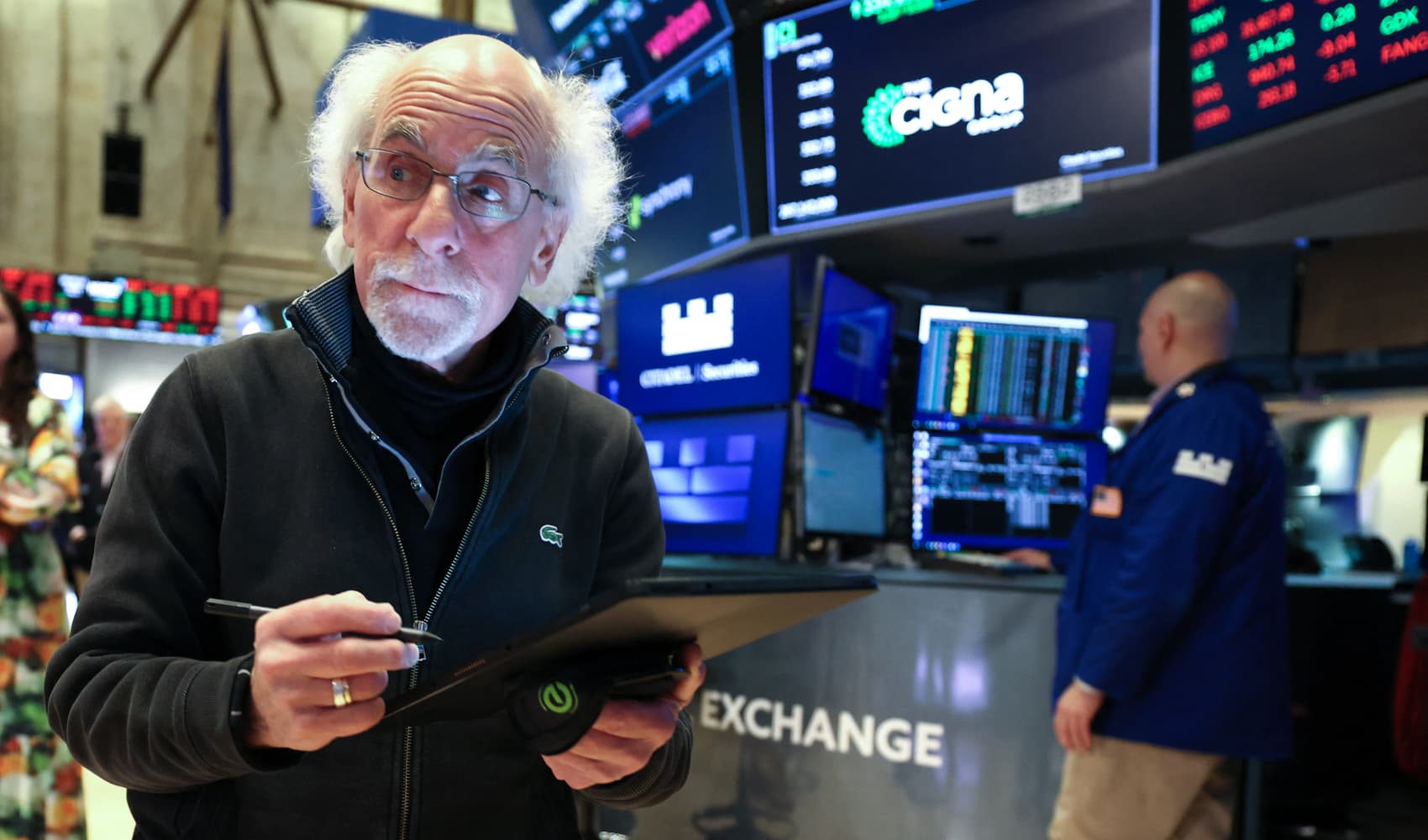Market Crash Alert: Warren Warns of Trump Fed Interference
Will Trump's Fed Meddling Trigger a Market Crash? Warren's Warning
Introduction: A Red Flag for the Economy?
Senator Elizabeth Warren has sounded the alarm, folks! In a recent interview, she warned that the U.S. markets are teetering on the edge of a “crash” if President Donald Trump is ever empowered to fire Federal Reserve Chair Jerome Powell. Now, that's a statement that demands our attention. But is it just political rhetoric, or a genuine economic threat? Let's dive in and unpack this complex issue.
The Warren Warning: Independence Under Threat
Warren's primary concern isn't necessarily about Powell himself, but rather about the crucial independence of the Federal Reserve. The Fed, as we know, is designed to be a non-partisan entity, making monetary policy decisions based on economic data, not political pressures. Warren argues that if a president can simply fire the Fed Chair for disagreeing with them, that independence is utterly compromised.
Why Fed Independence Matters
Think of the Fed as the economy's doctor. You want your doctor to prescribe the best medicine based on your symptoms, not based on what your insurance company (or your neighbor) wants. The same goes for the Fed. Political interference can lead to short-sighted decisions that benefit politicians in the short term but devastate the economy in the long run.
Trump's Frustration with Powell: A History of Discord
It’s no secret that Donald Trump has often voiced his displeasure with Jerome Powell and the Fed's interest rate policies. He’s publicly criticized Powell, even suggesting his “termination cannot come fast enough!” This public pressure puts a spotlight on the potential for political influence, regardless of whether Trump actually intends to fire Powell or not.
The White House Backpedal: Damage Control?
Following Trump's comments, a senior White House official attempted to downplay the situation, stating that Trump's words shouldn't be interpreted as a genuine threat to fire Powell. But has the damage already been done? Even the perception of political meddling can erode confidence in the Fed and the overall economy.
The Market Reaction: A Nervous Wiggle?
So far, the markets haven't exactly plunged into a full-blown panic in response to these comments. However, the increased volatility and uncertainty surrounding the Fed's independence can create a skittish environment. Investors don't like uncertainty, and the possibility of political interference in monetary policy is a major source of unease.
What Could Trigger a "Crash"?
Warren’s use of the word "crash" is certainly strong. But what factors could turn her warning into a reality? Erosion of investor confidence, increased borrowing costs, and a slowdown in economic growth are all potential consequences of a politicized Fed. These factors could, in turn, trigger a significant market correction, or even a crash.
The Role of Interest Rates: A Delicate Balancing Act
The Federal Reserve uses interest rates as a primary tool to manage the economy. Raising rates can curb inflation, but it can also slow down economic growth. Lowering rates can stimulate growth, but it can also lead to inflation. Finding the right balance is crucial, and requires careful analysis and independent judgment.
Too Hot, Too Cold: The Goldilocks Dilemma
Imagine trying to cook the perfect porridge. Too much heat, and it burns. Not enough, and it's cold and unappetizing. The Fed faces a similar challenge in setting interest rates. They need to find the "Goldilocks" rate that's just right for the economy.
The Fed's Dual Mandate: Balancing Act Continued
The Fed actually has a "dual mandate," meaning it's tasked with both maintaining price stability (keeping inflation in check) and maximizing employment. These two goals can sometimes conflict, making the Fed's job even more challenging.
Full Employment vs. Stable Prices: The Tightrope Walk
Achieving both full employment and stable prices simultaneously can feel like walking a tightrope. Sometimes, policies that boost employment can lead to inflation, and vice versa. The Fed must carefully weigh these trade-offs and make informed decisions.
Historical Precedents: Learning from the Past
Throughout history, attempts to politicize central banks have often led to negative economic consequences. Countries with independent central banks tend to have lower inflation rates and more stable economies. These historical lessons underscore the importance of safeguarding the Fed's independence.
The Weimar Republic: A Cautionary Tale
The hyperinflation in the Weimar Republic in the 1920s serves as a stark reminder of what can happen when a central bank loses its independence. Political interference in monetary policy contributed to the economic chaos that gripped Germany at the time.
Beyond Warren and Trump: A Bipartisan Issue
While Warren is a Democrat and Trump is a Republican, the importance of Fed independence should be a bipartisan issue. A stable and healthy economy benefits everyone, regardless of their political affiliation. Protecting the Fed's independence is vital for the long-term prosperity of the United States.
Finding Common Ground: A Path Forward
Perhaps the best approach is for politicians from both sides of the aisle to publicly reaffirm their commitment to the Fed's independence. This would send a strong signal to the markets and help to calm any anxieties about political interference.
The Global Implications: A Ripple Effect
The U.S. economy is the largest in the world, and its monetary policy decisions have global implications. A disruption to the Fed's independence could send shockwaves through the global financial system.
Contagion Effect: A Global Domino
Imagine a row of dominoes. If the Fed loses its independence, it could trigger a chain reaction that spreads to other countries, leading to economic instability around the world.
Conclusion: Safeguarding the Fed's Independence
Senator Warren's warning about a potential market crash if Trump were able to fire Fed Chair Powell highlights the critical importance of maintaining the Federal Reserve's independence. While the immediate market reaction may be muted, the long-term consequences of political interference in monetary policy could be severe. Protecting the Fed's independence is not just a political issue; it's an economic imperative. Let's hope cooler heads prevail and that the Fed continues to operate as a non-partisan entity, guided by data and the best interests of the economy.
Frequently Asked Questions
- Why is the Federal Reserve so important to the economy? The Federal Reserve manages the nation's monetary policy, which influences interest rates, inflation, and employment. Its actions have a significant impact on the overall health of the economy.
- What does it mean for the Fed to be "independent"? Independence means the Fed makes decisions based on economic data and analysis, free from political pressure or influence. This allows for long-term stability and prevents short-sighted policies.
- How could a president firing the Fed Chair impact the markets? It could erode investor confidence, leading to increased volatility and potentially a market downturn. The perception of political interference can create uncertainty and instability.
- What is the Fed's "dual mandate"? The Fed is tasked with maintaining both price stability (keeping inflation low and stable) and maximizing employment. These two goals can sometimes conflict, requiring careful decision-making.
- What can be done to protect the Fed's independence? Publicly reaffirming the importance of Fed independence, appointing qualified individuals to the Fed's board, and resisting the temptation to politicize monetary policy are all crucial steps.


